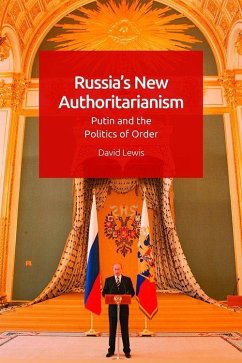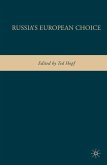'This is the first work to thoroughly examine the relevance and impact of the ideas of Carl Schmitt in contemporary Russia. Lewis convincingly argues that Putin's world view reflects some of Schmitt's categories, such as "identitarian democracy" and "great space" power projection beyond the nation-state. This is a valuable contribution both to the politics of comparative authoritarianism and the history of ideas in contemporary Russia.' Peter Rutland, Wesleyan University An innovative study of the transformation of Russian domestic politics and foreign policy under Vladimir Putin This book goes beyond current polemical debates to explain why Russia's post-Soviet political system developed into a new form of authoritarianism and how its foreign policy came to pose such a profound challenge to the West. The author analyses the Russian political system as a novel form of authoritarian political order, characterised by the consolidation of political and economic power around a sovereign leader and a willingness to take political decisions outside the law both at home and in international affairs. The book explores this political system by unpacking the ideological paradigm that underpins it, investigating the Russian understanding of key concepts such as sovereignty, democracy and political community. Through the dissection of a series of case studies - including Russia's legal system, the annexation of Crimea, and Russian policy in Syria - the author explains why these ideas matter in Russian domestic and foreign policy. David Lewis is Associate Professor of International Relations at the University of Exeter, UK. Cover image: Vladimir Putin in the Andreas-Saal, Kremlin, Moscow, 2007 (c) akg-images / Sputnik Cover design: [EUP logo] edinburghuniversitypress.com ISBN 978-1-4744-5476-6 Barcode








